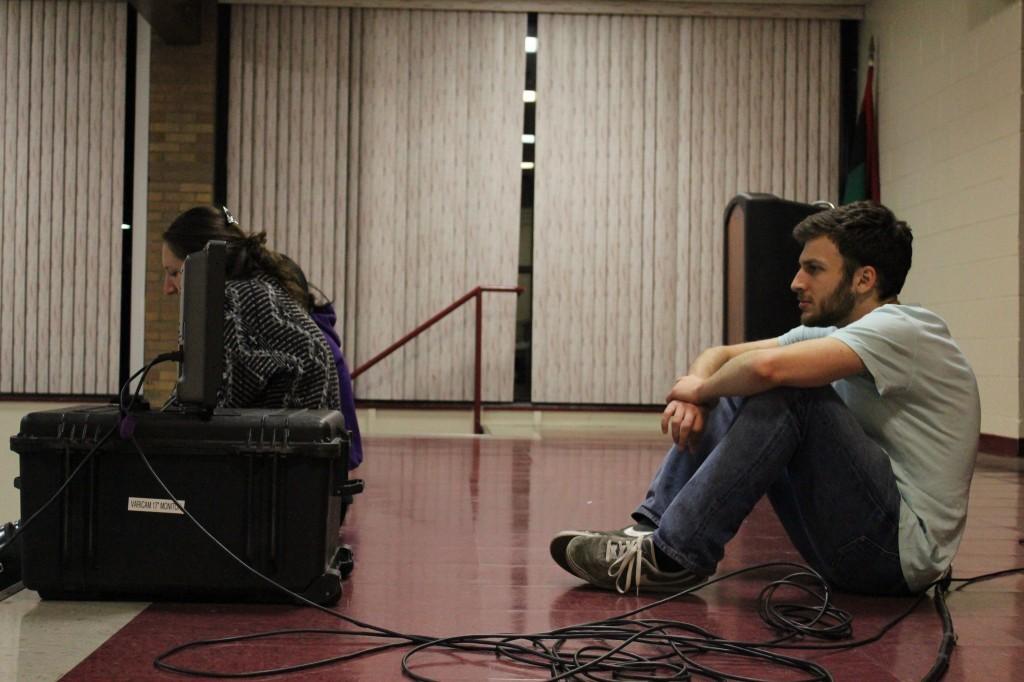A lonely 20-something feels like the odd one out in his group of friends and starts a cult to fill the void. No, it’s not the beginning of a horror story: it’s the plot line of a short comedy film written and directed by RTVF senior Andrew Nissen. He received a grant for his short film from Studio 22 Productions earlier this year and he’s since spent countless hours working on making what was once just a vision into a reality. Nissen sat down with The Current to discuss the making of “The Cult of Sam,” which premieres in June.
The Current: Tell me about how you started “The Cult of Sam.”
Andrew Nissen: I wrote “The Cult of Sam” sometime over spring break this past year, then I went to Studio 22, which is a student-run production company that gives grants to student filmmakers. I pitched my film to them. They liked it, so they gave me a $3,000 grant to make it. Then all over this summer and up until early fall this year, I’ve been in pre-production, assembling a crew and doing a lot of different preparatory tasks. The weekends of October 12-14 and 19-21, we shot (the film).
The Current: What is the “The Cult of Sam” about?
AN: “The Cult of Sam” is a short film, a comedy, about a dejected 20-something guy named Sam who feels like he is forgotten by his friends, like he is the one no one really cares about. So he decides to remedy that situation by starting a cult of which he is the leader, and of course, it’s a little bit more than he bargains for. He realizes there’s some problems that come with (starting a cult).
The Current: What have you done in the past that led up to this project?
AN: This is probably the first project of this capacity I’ve taken on. I’ve directed short films for class projects before, and this past spring I directed an episode of … an RTVF-run three-episode original television series. For (“The Cult of Sam”), the ball was really in my court. If I decided to stop working on it, it would have failed.
The Current: What were some challenges you faced while working on your film?
AN: The biggest challenge was gathering a crew of talented people to work on it. You’re really asking someone to dedicate their time and energy and resources to something that isn’t yet theirs … it’s asking them to jump two feet in and make it theirs. Luckily, we ultimately have a great group of people working on it and I think it’ll definitely show.
The Current: Where did you end up finding such a great group to work with?
AN: In RTVF we do something called group petitions, where all the groups that are shooting will be sending out emails … which mean “Come meet me in Norbucks and tell me to what capacity you want to work on this …” so I did a lot of that, and then just asking friends who I knew had experience in certain areas.
The Current: Since it’s a short film, how big is your cast?
AN: The script itself is 17 pages in length, which will probably amount to about 15 minutes total run-time, but we won’t know until June when it premieres. I think we have eight actors. Casting was fun. There are seven Northwestern actors and one local actor. A lot of them are actors I’ve worked with before, and I knew they were very talented and I thought they’d be great for the role, but there were definitely a few new faces for me.
The Current: What advice would you give to others who want to take on a similar project?
AN: I would tell them to try everything in some capacity. You definitely shouldn’t direct a $3,000 grant film your freshman year, but you should work on someone else’s in a smaller capacity. Try out being on set, figure out what you like and what you don’t, and write things, act in things. There’s a lot of different spots in the film world for you to try, and I think you kind of have to taste all of them a little bit before you decide what you’re into.
The Current: What are your post-graduation plans?
AN: Ideally, I’d love to eventually be a staff writer on a show and maybe even create and executive produce my own show someday. In the interim, I’m interested in working in comedy development for a television program, or just development in general. I’m really interested in the process of taking a script and revising it and saying “Here’s what works, here’s what doesn’t.”

